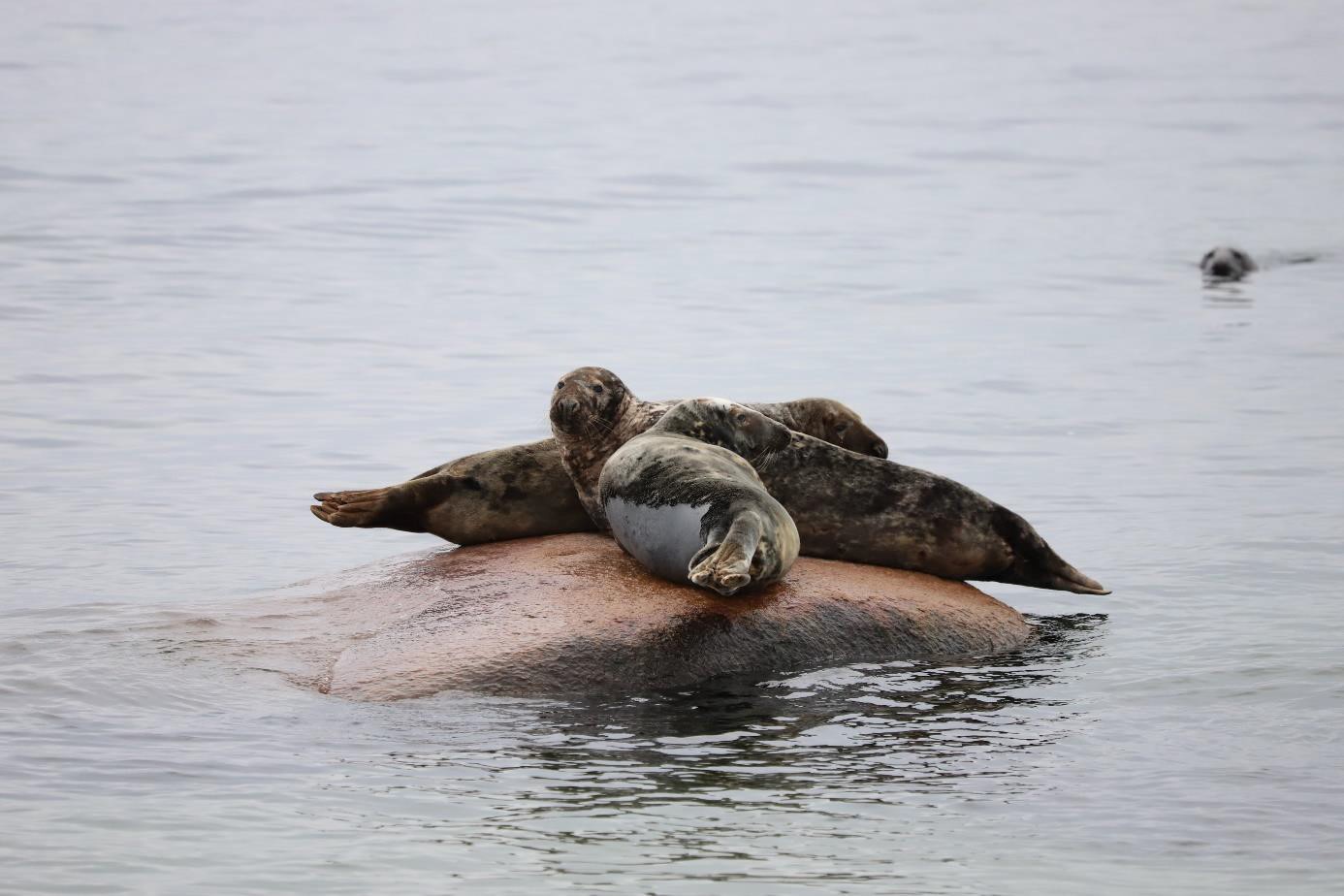Rector Prof Dr Elizabeth Prommer handed over the certificate to Katja Mehrwald during a ceremony at the University of Rostock. | Photo: University of Rostock
The junior researcher analysed 104 intestinal and 23 stomach content samples from grey seals that were found dead within the marine mammal stranding network of the German Oceanographic Museum in Mecklenburg-Western Pomerania. This method revealed that herring, cod and round goby were among the top predators' main prey - with the size and type of prey fish correlating with the size of the seals.
In addition, Katja Mehrwald carried out genetic analysis of the samples, which enabled her to identify not only herring, but also sculpin and freshwater species such as roach as relevant prey. She also used this sensitive method to identify other species in the diet of grey seals along the coast of Mecklenburg-Western Pomerania that had not previously been detected by morphological analysis, such as lumpfish and eel.

Grey seals are top predators. To some extent they compete with coastal fisheries for the same resources. | Photo: Linda Westphal
"Only the combination of morphological and genetic analyses enabled us to comprehensively clarify the diet composition of grey seals," said Mehrwald, adding: "Despite some methodological challenges, the results are therefore relevant for the conservation and management of this fascinating and increasingly common species in the Baltic Sea."
Katja Mehrwald is now a PhD student at the Institute of Inland Fisheries (IfB) in Potsdam. In the project "Cormorant-induced mortality in western cod (KoMoDo)", she is investigating the influence of cormorants on the historically poor state of cod stocks in the western Baltic Sea. "We want to better understand the causes of the stock dynamics in order to be able to better assess the chances of recovery of the western cod stock and thus the prospects for its future utilisation in fisheries," the young scientist explained.
Congratulations to Katja on this remarkable achievement!








